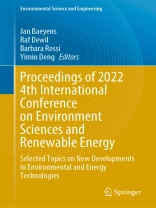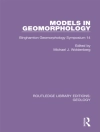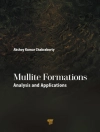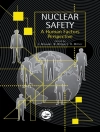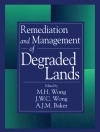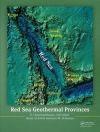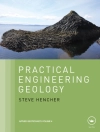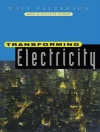This book consists of selected papers from the 2022 4th International Conference on Environment Sciences and Renewable Energy, which was held as a fully virtual conference during May 27–29, 2022. The book overviews the latest progress in environmental and energy technologies with a specific focus on wind turbines and hydrogen production. In the field of environmental science, wastewater treatment, air pollution abatement, solid waste treatment, and general policy recommendations are discussed. Technology advances, especially in wastewater nutrients and micropollutant removal, are covered. In policy measures, cost allocations, optimum recycling strategies, and environmental footprint allocations of different environmental technologies are included. In the field of renewable energy, several hot topics, including solar cells, offshore floating wind turbines, and renewable energy resource potentials in different regions are considered.
表中的内容
Pollution Risk Assessment of Oil Spill Accidents in the Liao-dong Bay of China.- Research on Ecosystem Status Evaluation of Open-pit Mines.- Antioxidant Response in the Respiratory Tree of Sea Cucumber Apostichopus japonicas Following Acute Exposure to Merey Crude Oil.- Robust Real-time Updating of Real-time Flood Forecasting System Based on Kalman Filter.- Effect of Compost and Humus of Organic Solid Waste on the Reduction of Cadmium in the Soil and in Different Organic of Seedlings Theobroma Cacao (CACAO) In Nursery.- Influence of Different Particle Sizes of Sediment Laden Flow on Erosion Rate of Tailings Dam.- Properties of Porous Concrete Using Expanded Polystyrene (EPS) Foam Waste as Cement Binder Admixture.- Building a sustainable municipal solid waste treatment system in Japan- A critical review.- Geoturism and the Effects Caused by Solid Waste in the Tourist Attraction of Geological Formations of Torre Torre – Huancayo, Peru.- Utilization of New Fly Ash Type from Selective Catalytic Reduction (SCR) Process as an Additive in Portland Cement.- Experimental Study on the Dynamic Responses of a 2 MW Cross-shaped Multi-column Spar Floating Offshore Wind Turbine.- New Promising Modified Activated Carbons for CH4 and CO2 Adsorption.- Optimization of a Dual-Chamber Microbial Fuel Cell for the Biodegradation of Acetaminophen.- Study on the Relationship between Energy Consumption of Shipbuilding and Shipbuilding Costs.- Analysis and Research on Basic Structure of the PID Steam Pressure System.- Hydrogen Production by Catalytic Conversion of Ammonia.- Concentrated solar power receiver with fluidized particles: experiments and simulations define the hydrodynamic and thermal characteristics.
关于作者
The editors were actively involved in the 2022 4th International Conference on Environment Sciences and Renewable Energy (ESRE), as a conference chairman, the session chairpersons and the oral research presenters.
They published over 500 peer-reviewed papers, with more than 30, 000 citations. Their cumulative h-factor exceeds 130.
Jan Baeyens studied nuclear engineering (Brussels-Belgium) and chemical engineering (Leuven-Belgium). He obtained his Ph.D. at the Postgraduate School of Powder Technology (Bradford-U.K.). He was employed in engineering divisions of various companies (1975–1988) and became a part-time professor at the University of Leuven, while also working as a process and project consultant in Europe and overseas. He joined the University of Antwerp as a full professor (2005–2007) and was the chair holder of the U.K. Royal Academy of Engineering at the University of Birmingham (UK) and at the University of Warwick (UK) (2007–2013). Since October 2011, he has been a visiting professor at the Beijing University of Chemical Technology (BUCT) and a principal investigator of the Beijing Advanced Innovation Centre for Soft Matter Science and Engineering (also BUCT) with research actions in environmental and renewable energy. He co-supervises Ph.D. and M.Eng. research at KU Leuven and at BUCT. He wrote numerous peer-reviewed papers in international journals, and he is the author and editor of 14 books and a regular speaker at international congresses. He is the guest editor for Elsevier journals and an editorial board member of various journals such as Energies, Standards and Frontiers of Chemical Science and Engineering.
Raf Dewil studied chemical engineering (Leuven-Belgium) and obtained his Ph.D. at the University of Antwerp. He is a full professor at the Department of Chemical Engineering of KU Leuven and a visiting professor at the Engineering Science Department of the University of Oxford. Prof. Dewil’s research interests are mainly in the field of resource recovery and the degradation of hazardous organic components from water and wastewater. In (waste)water treatment, most emphasis in his research is on the application of photochemical and electrochemical advanced oxidation processes (AOPs), including the application of novel photo- and electrocatalytic materials. He has co-authored numerous peer-reviewed papers in international top journals in the fields. He is the editor-in-chief of the Journal of Environmental Management and an editorial board member of various international journals such as Chemical Engineering Journal and Renewable Energy.
Barbara Rossi studied civil engineering in Belgium. After having received the Arcelor Prize (2003) for her Master’s thesis, she joined the National Fund for Scientific Research as a doctorate fellow and completed her Ph.D. on the structural behaviour of stainless steel profiles in 2009. During her doctorate study, she obtained competitive funding from Rotary International to collaborate with the University of Sydney and Imperial College London. As a postdoctoral researcher, she worked principally on the strength of hot cross sections and cold-formed profiles in view of a more rational exploitation of their material strengths in structures. As a full professor at the Department of Civil Engineering, KU Leuven (2013), she led a research group focusing on the development of design guidance for metallic structures. Between 2013 and 2019, her team’s research projects led to the amendments of the EUROCODES on the stability of stainless steel structures and fatigue behaviour of hot-dip galvanised steel structures. In 2019, she started her new academic career at the University of Oxford and expanded her core research activities towards the study of hybrid structures in harsh environments and structures obtained via additive manufacturing. Over the last 10 years, she became a recognised expert into the area of life cycle analysis and sustainability applied to the construction sector for which she was awarded Carbon Champion in 2021 by the Institution of Civil Engineers.
Yimin Deng completed her 4 years Bachelor’s cycle in chemical engineering and technology at the Beijing University of Chemical Technology (BUCT). She obtained her Master’s degree in fluid engineering at the National Institute of Applied Sciences of Toulouse (INSA-Toulouse University). She performed a doctoral research programme in chemical engineering at the Faculty of Engineering Technology, KU Leuven. This research combined experiments at KU Leuven, at BUCT and at the University of Birmingham (radioactive tracer imaging). She has published nearly 40 peer-reviewed papers in international journals and presented her research at different international conferences. Her main research focus is on scale-up strategies for solar thermo-chemical and catalytic reactors, including their computational fluid dynamics simulations. She specialises in the production of “green” hydrogen and the application of concentrated solar energy.
